Intellectualizing Development and What Makes a Good Leader
Leadership development is a subject of keen and perpetual interest. Are leaders made or born? What makes a good leader? How does a person develop the ability to lead effectively? What are the competencies of good leadership?
In attempting to answer these questions and ultimately to make leadership development a more predictable and linear process, we use models. Herein lies a trap.
There are many models of leadership development to choose from. Psychologists, professors, and practitioners of the craft use models to help us get a mental image of the work at hand. These models can stimulate great discussion. This discussion can, and often does, consume multiple meetings.
In working to select and understand a model, we postpone the real work of development. This is what I mean by intellectualizing development. Thinking and talking about things sometimes feels like progress. It isn’t.
In any change or growth process there are two distinct aspects involved: the intellectual and the emotional. The intellectual—often involving models—allows us to know ‘what’ to do. It provides a roadmap for our journey. Almost every executive I’ve ever worked with gets this.
It’s the emotional aspect—the ‘how’ to do something—that stimulates feelings of vulnerability, uncertainty, and sometimes real fear. Think about that crucial conversation you know you need to have with your assistant. You are crystal clear about what needs to be said and why. But thinking about actually sitting down with her and speaking the words… that’s another story. No development model is going to take away the discomfort that stops a lot of people dead in their well-intentioned tracks. Getting past the fear and having the crucial conversation requires something beyond cognitive understanding.
Being smart about a process is important. Applying your knowledge to change your behaviors is damned tough. I admire people who are willing to face their fears in order to grow. I’m inspired by them and by the work they do. The satisfaction they feel as they experience progress is written all over their faces. And it’s contagious.
What makes a good leader? At the core, I believe it’s an essential combination of intellectual capacity to understand the work to be done and the emotional courage to “have at it.” By all means, think the thought. Then get busy with the action.
Categories: General Advice